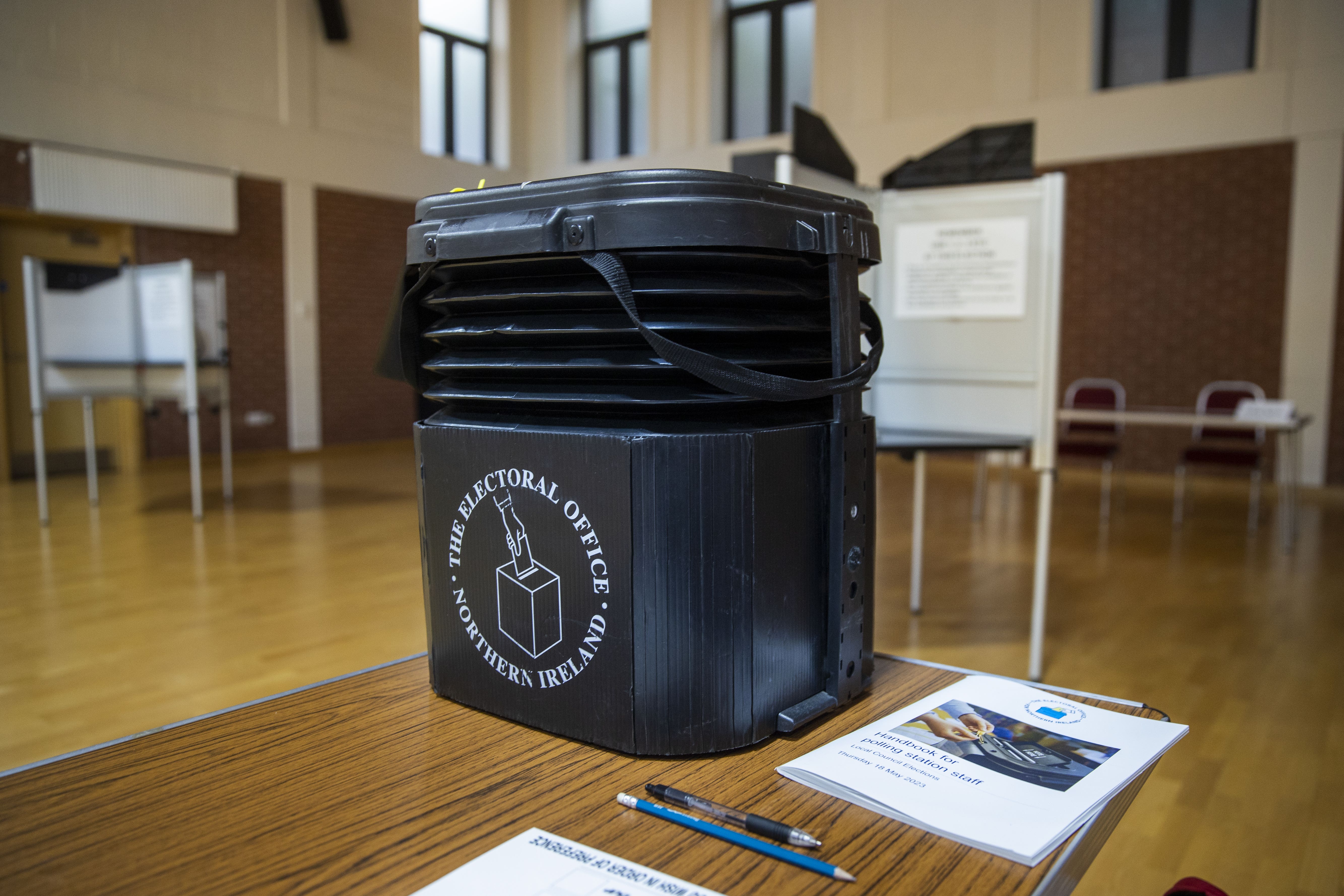Candidates’ stance on Windsor Framework will affect 63% of voters – report
The report from Queen’s University Belfast comes just weeks before voters go to the polls for the 2024 General Election.

Election candidates’ stance on the Windsor Framework will impact around two-thirds of voters in Northern Ireland, a report has found.
Around a third (33%) of voters in the region are expected to vote only for candidates who support the post-Brexit agreement, while 30% will vote for those critical of it.
The remaining 37% indicated it will not affect their vote in this year’s General Election, according to a report from the Queen’s University Belfast.
It is the eleventh in a series called Testing the Temperature – the views of voters in Northern Ireland on Brexit and the Northern Ireland Protocol/Windsor Framework.
The series is being produced as part of a four-year project funded by the Economic and Social Research Council (ESRC), part of UK Research and Innovation (UKRI).
Principal investigator, Professor David Phinnemore from the School of History, Anthropology, Philosophy and Politics at Queen’s said the protocol and framework “clearly matters” for how most voters will vote in the upcoming General Election.
Most voters would prefer pragmatism rather than principle determining whether the UK signs up for regulatory alignment with the EU. Whether a new government delivers, remains to be seen
“Most are clear on what they want to see from a new government,” he said.
“Despite a near equal split in terms of voting for candidates who are critical or supportive of the protocol/Windsor Framework there is majority support among nationalists, neithers and unionists for a closer UK-EU relationship provided it reduces constraints on the movement of goods between GB and Northern Ireland.
“And most voters would prefer pragmatism rather than principle determining whether the UK signs up for regulatory alignment with the EU. Whether a new government delivers, remains to be seen.”
Co-investigator, Professor Katy Hayward from the School of Social Sciences, Education and Social Work at Queen’s, said: “While a third of voters will only vote for candidates who support the Windsor Framework, the data suggests that the Windsor Framework itself is not a priority issue for such voters.
“In contrast, it seems that most of the 30% of respondents who would only vote for candidates opposed to the Windsor Framework see it as a vital issue of concern.
“In and of itself, this points to a new tension over the Windsor Framework for NI politicians to navigate.
“This tension is now perhaps not so much about its existence or its contents or implications, but about whether people wish to continue debating it at all.
“This is not new in NI, of course, as opponents of the 1998 Agreement would remind us, but it does suggest that resistance to the Windsor Framework will remain a live feature in NI politics even as the majority wish to ‘move on’.”
The latest poll (using a weighted sample of 1,016 respondents from across Northern Ireland) was conducted by LucidTalk for Queen’s University on May 31 – June 3 2024, with the survey taking place just a few days after Prime Minister Rishi Sunak called a UK General Election to be held on July 4, 2024.
For the full report and findings, visit www.qub.ac.uk/sites/post-brexit-governance-ni/ProjectPublications/OpinionPolling/ and follow on X, formerly Twitter: @PostBrexitGovNI.
Bookmark popover
Removed from bookmarks